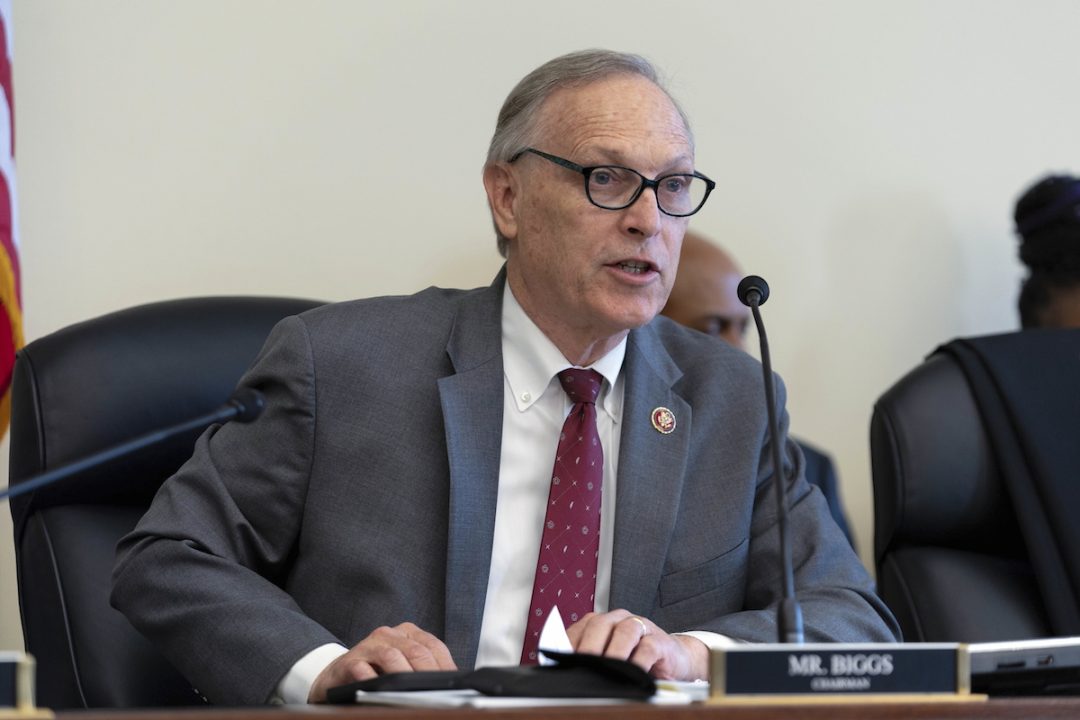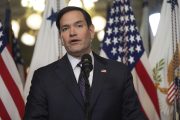
Representative Andy Biggs (R-Ariz.) has introduced House Resolution No. 55 (H.R. 55), which aims to repeal the National Voter Registration Act of 1993 (NVRA), also known as the “Motor Voter” Act. H.R. 55, introduced by Biggs and Representative Scott Perry (R-Pa.), states:
A BILL To repeal the National Voter Registration Act of 1993. Be it enacted by the Senate and House of Representatives of the United States of America in Congress assembled, SECTION 1. REPEAL OF NATIONAL VOTER REGISTRATION ACT OF 1993. The National Voter Registration Act of 1993 (52 U.S.C. 20501 et seq.) is repealed.
National Voter Registration Act of 1993
The NVRA was signed into law by former President Bill Clinton with the primary goal of increasing voter registration by making the registration process “widely accessible and easy to accomplish” as well as increasing election participation among “historically underrepresented groups.”
The act requires states to offer voter registration when individuals apply for or renew a driver’s license at Departments of Motor Vehicles (DMVs). It also mandates that voter registration be available at state-funded offices providing public assistance, unemployment compensation, or services for the disabled, with the goal of expanding standard voter registration.
By integrating voter registration into these government interactions, the NVRA increases voter participation in specifically targeted groups. Since becoming law, Democrats have credited the NVRA with significantly increasing voter registration and participation, while ignoring concerns regarding voter-roll maintenance neglect — raising serious concerns regarding the high potential for voter fraud in elections.
Three Decades of Compromised Election Integrity
Critics say the NVRA undermines the principles of the Constitution by transferring the authority to administer elections away from state governments, as well as disenfranchising legitimate voters due to the increased threat of voter fraud.
Biggs argues the most significant threat posed by the NVRA is its failure to ensure citizenship verification during voter registration, increasing the risk of voter fraud, and non-citizens compromising the integrity of election results. As Representative Biggs noted in a press release, “Motor Voter” requirements threaten the integrity of our elections:
Election integrity is central to the bedrock of our constitutional republic. Currently, though federal law requires an individual to be a U.S. citizen to vote in federal elections, it requires states to accept merely a signed attestation from an individual that he or she is a U.S. citizen – without any further proof of citizenship. This lax procedure, to register individuals to vote in states that have strict citizenship requirements for voter registration, is a threat to the integrity of our elections.
The NVRA has fundamentally compromised the integrity of our electoral system by requiring states to register voters without proof of citizenship, and restricts states from properly managing outdated and inaccurate voter rolls, or removing duplicate voter registrations.
Constitutional Authority
Article I, Section 4; Article I, Section 8; and the 10th Amendment clarify the division of power between federal and state governments, specifically limiting Congress’ power to congressional elections. H.R. 55 is crucial to return authority to the states to administer their elections in accordance with the Constitution.
According to Article I, Section 4, Congress can only regulate the times, places, and manner of holding elections for senators and representatives, and this power is to be exercised on a case-by-case basis. This section does not grant federal authority over state or local elections.
Additionally, Article I, Section 8 lists the enumerated powers of Congress, with no mention of regulating state or local elections. The 10th Amendment explicitly states that powers not delegated to the United States by the Constitution, nor prohibited by it to the States, are reserved to the States or to the people. Therefore, the administration of elections at the state and local levels, including how states manage voter registration and identification through agencies such as DMVs, should fall under the authority of the states.
H.R. 55 seeks to restore electoral integrity and state sovereignty by returning the responsibility of voter registration to the states. The NVRA imposes a federal one-size-fits-all approach, undermining the principle of federalism envisioned by the Founding Fathers and enshrined in the Constitution.
Biggs’ legislation looks to strengthen the principles of our Republic, transferring authority back to the states, and returning to more efficient and secure elections managed by the states. Repealing the NVRA would abolish unconstitutional voter registration practices that have been in place for more than three decades.



